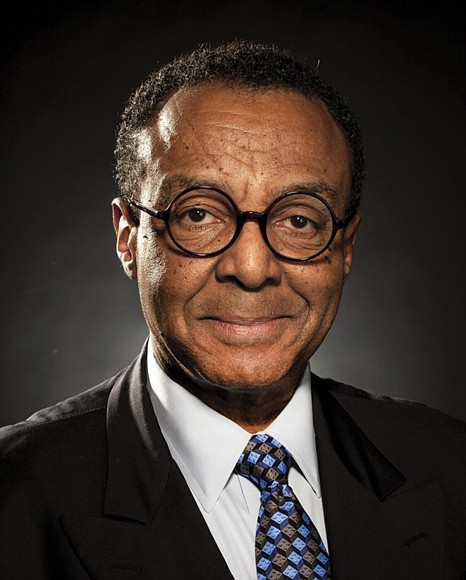Is Donald Trump a fascist? Close enough, by Clarence Page
10/31/2024, 6 p.m.
Donald Trump and MAGA loyalists may scoff at the charge that he’s a fascist, but let’s face it, he at least offers a remarkably good imitation.
The F-word came up prominently as radio host Charlamagne Tha God interviewed Vice President Kamala Harris in mid-October about her vision compared to that of her Republican rival.
“The other is about fascism,” Charlamagne interjected regarding Trump. “Why can’t we just say it?”
“Yes,” Harris responded. “We can say that.”
It’s not just Charlamagne and Harris who say it. Gen. Mark A. Milley, the chairman of the Joint Chiefs of Staff under Trump, is quoted in a new book by journalist Bob Woodward (of Watergate fame) describing the former president as “fascist to the core.”
That mention of the F-word struck me as a startling violation of the unofficial but widely embraced political etiquette that sees the word as too volatile for public use, even though Trump has used the word – and just about every other word that grabs his fancy – against Harris.
Using the word to describe one’s rivals can come with a political risk. Just as the Anti-Defamation League has discouraged the practice of calling anyone “Hitler” except Adolf Hitler, Democrats have long avoided “fascist” as possible linguistic overkill. After all, they remember how Hillary Clinton’s dismissal of Trump supporters in 2016 as “a basket of deplorables” became a rallying cry for the MAGA movement.
President Biden, for example, who has long called attention to Trump’s threats to democracy, only went far enough to scorch Trump’s movement in 2022 as “like semi-fascism.”
But in this year’s campaign Trump has considered no epithet too vile to be off limits. He has persisted in ratcheting up his own rhetorical overkill, stirring up nativist fear and racial resentment, and making threats to use the military against “the enemy from within.” It’s no wonder many Democrats no longer hesitate to use frank language to describe Trump.
Earlier this month, the previously constrained Hillary Clinton chimed in with a media post on X, formerly Twitter, that “Trump’s rhetoric has become blatantly fascist.”
Trump, too, has used the F-word, albeit not very much, perhaps because he doesn’t feel it serves to excite his crowds in the direction he seeks. Indeed, Trump surrogates have tried to portray Democrats’ use of the word “fascist” as some kind of dangerous provocation.
In his role as campaign attack dog, Trump’s running mate, Sen. JD Vance of Ohio, said this shortly after the apparent second attempt to shoot Trump in September:
“(I)t’s time to say to Democrats, to the media, to everybody that has been attacking this man and trying to censor this man for going on 10 years, cut it out or you’re going to get somebody killed.”
Of course, Vance neglected to mention that Trump has used the same word to attack Harris at least five times.
I offer my apologies to any Trump supporter who feels unnecessarily offended by my candor on this touchy topic. Fascism does not always announce itself with drums and trumpets at high volume.
Besides, in my experience, everyone defends free speech as long as it is their own. The greatest value of the First Amendment is in protecting the rights of others and views that are not the most popular.
It would be truly tragic for our system to be undone by the very freedoms it was intended to protect. But it’s always possible.
Already we see reports that Milley fears being recalled to uniform and court-martialed for retribution if Trump gets re-elected. Although Milley does not appear to have broken any laws, a president with the near-imperial powers today’s conservative Supreme Court has granted shouldn’t have much trouble finding something.
Of course, we voters have the power to avert this threat to our democracy. We should use it.
The writer is a columnist for the Chicago Tribune.







